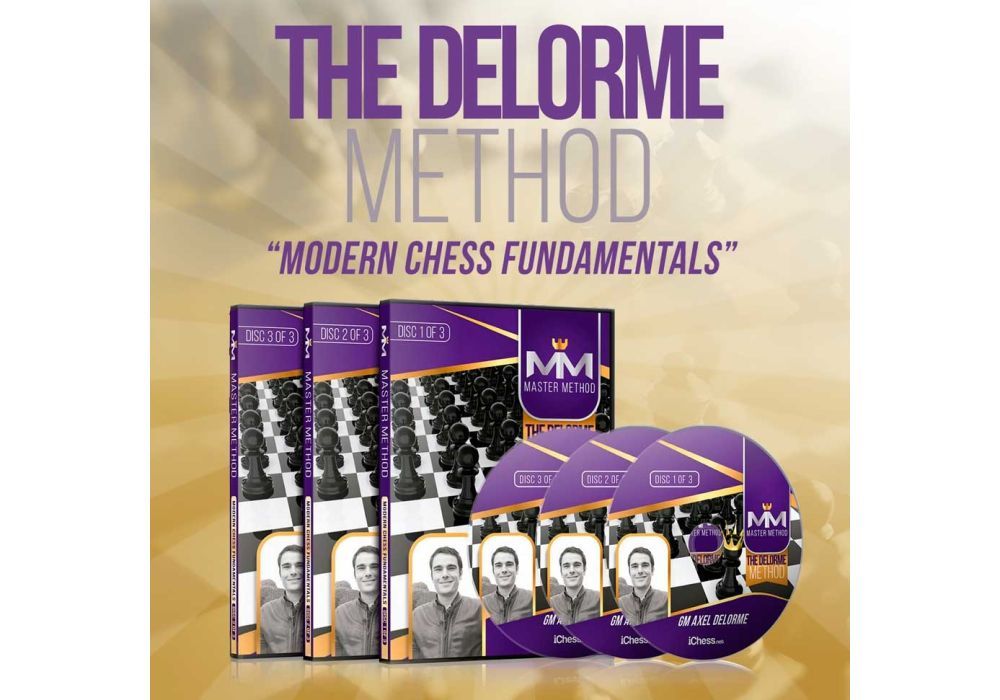Master Method Series #27

For those who desire success in chess, mastery of the fundamentals is essential.
But our understanding of this ancient game has changed a lot in the computer era, and the question of what those fundamentals are and how they should be approached has had to be re-examined.
Now, French GM Axel Delorme has put together the essential guide to playing great chess in Modern Chess Fundamentals. In this 15 hour course Axel sets out the golden rules for getting active positions without weaknesses, drawing on some of the most instructive games ever played.
Everything in Modern Chess Fundamentals is geared towards improving the skills that lead to practical success, such as how to handle the bishop pair (often a winning advantage in the hands of masters but typically wasted by club players); how to shape the pawn structure for a long-term advantage and the essential endgame knowledge that will serve you well for the rest of your life.
Modern Chess Fundamentals is a comprehensive course for players aiming to reach 1800 level.
Summary:
Chapter 1: Importance of Development and King Safety
- Morphy’s Opera House Game
- Schulten – Morphy
- Marache – Morphy
Chapter 2: Poisoned Pawns in the Opening
- Nimzowitsch – Alapin
- Browne – Quinteros
- Tingov – Fischer
Chapter 3: Don’t Castle Too Early
- Black Castles Too Early
- White Castles Too Early
- Pawn Defense in Front of a Castled King
- Castling into Weakened Pawn Structure
- The Knight as a Defender of a Castled King
Chapter 4: Positional Sacrifices
- Reshevsky – Petrosian
- Liublinsky – Botvinnik
- Yurgis – Botvinnik
- Nezhmetdinov – Chernikov
Chapter 5: Choosing a Plan after the Opening
- Benko – Petrosian
- Spassky – Petrosian
- Bukic – Petrosian
Chapter 6: How to Use the Bishop Pair
- Rosenthal – Steinitz
- English – Steinitz
- Richter – Tarrasch
Chapter 7: When Bishops Fianchetto
- Fischer – Larsen
- Fischer – Purevzhav
- Peterson – Larsen
- Panov – Simagin
- Petrosian – Ree
- Kotov – Gligoric
Chapter 8: Pawn Structures and Weakened Squares
- Rubinstein – Salwe
- Karpov – Browne
- Botvinnik – Flohr
- Canal – Capablanca
Chapter 9: Bad Pieces
- Karpov – Lautier
- Polgar – Anand
- Ivanchuk – Anand
Chapter 10: Endgame Principles
- Good Bishop vs Bad Bishop
- Good Knight vs Bad Bishop
- Good Bishop vs Bad Knight
- Philidor and Lucena Rook Endgames
- Rook and Pawn Endgames
- More Complicated Rook and Pawn Endgames
- Pawn Endgames
Chapter 11: Tactics and Calculation
- Tal – Kazimirovich
- Birbrager – Tal
- Tal – Skuja
Chapter 12: Chess Studies
- Stalemate Studies
- Endgame Studies




